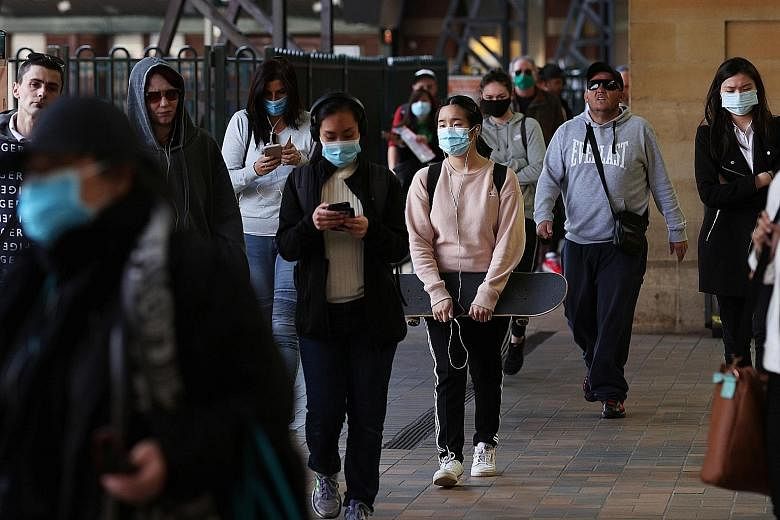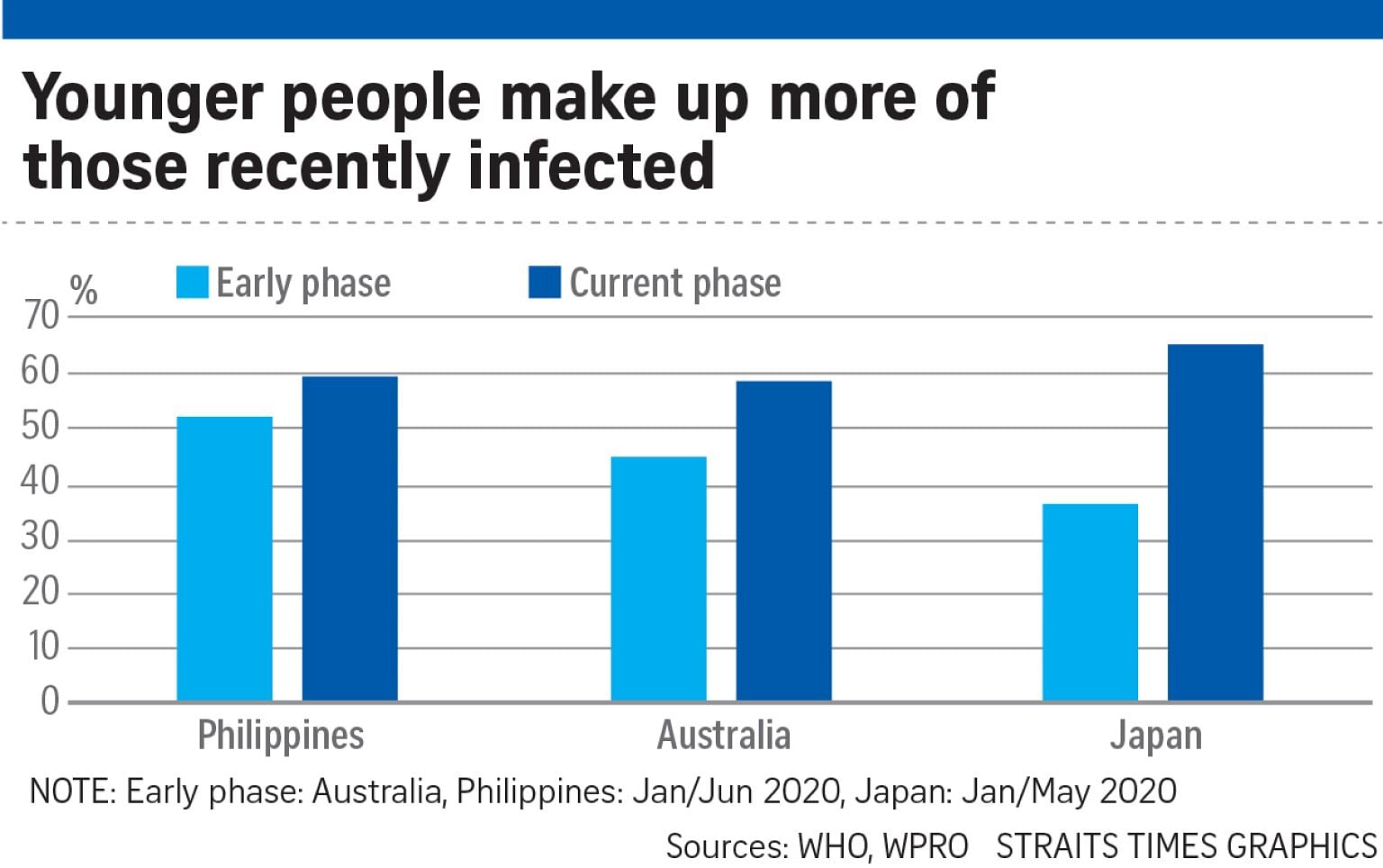The pandemic is changing as people in their 20s, 30s and 40s are increasingly driving the spread of Covid-19 infections in countries in this region that are seeing a surge in cases.
In Japan, the Philippines and Australia's state of Victoria, more than half the people infected are younger than 40 years old, said Dr Tamano Matsui, the World Health Organisation's (WHO) Western Pacific Programme area manager for health emergency information and risk assessment. In fact, 65 per cent of people infected in Japan last month and this month are 39 years old or younger.
Dr Matsui added: "This is particularly concerning as these age groups are more likely to have mild or even no symptoms."
Many of these younger people are unaware that they have been infected and are spreading the disease, said Dr Takeshi Kasai, WHO's regional director for the Western Pacific. "They're infected with very mild symptoms, or none at all. This can result in them unknowingly passing on the virus to others."
He said the higher number of younger people testing positive is due to several factors. One is greater testing capacity in these countries. But another reason is that people in that age group might not see obvious symptoms that push them to get tested.
People in these younger age groups could "potentially become an important driving force of the pandemic" if they have mild or no symptoms, as most of them tend to be active.
This increases the spread, driving numbers up. Dr Kasai added that this also "increases the risk of spillovers to the most vulnerable: the elderly, the sick, people in long-term care, people who live in densely populated urban areas and under-served rural areas".
So it is important for young people to pay attention to any mild symptoms they may have. "We must redouble efforts to stop the virus from moving into vulnerable communities."
Salma Khalik



